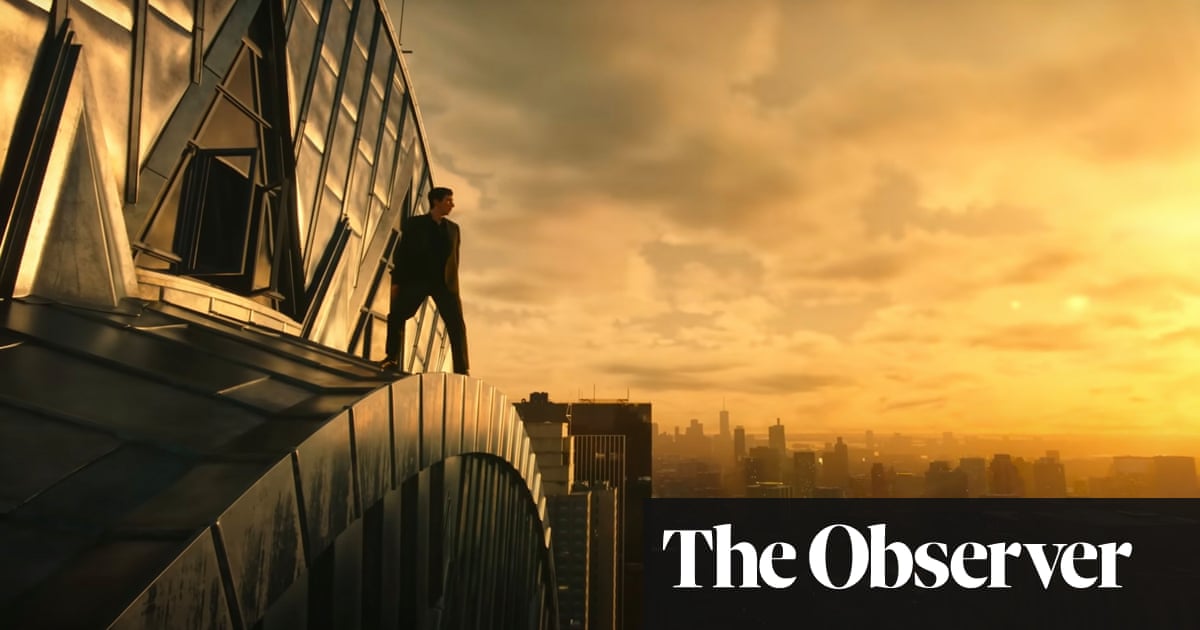- cross-posted to:
- art@lemmy.world
- cross-posted to:
- art@lemmy.world
In Hollywood, the first weekend of May is traditionally seen as the official kick-off of the summer movie season: an auspicious blockbuster date that has, of late, become rather a boring one.
Since 2007, when Spider-Man 3 (three full cycles ago in that deathless franchise) topped the box office – and barring two years where the global pandemic threw the mainstream release schedule into disarray – that weekend has been the exclusive domain of Marvel superhero adaptations, through to Guardians of the Galaxy Vol. 3 claiming the No 1 spot last May. That stranglehold was set to continue this year, with the legacy-milking superhero mash-up comedy Deadpool & Wolverine scheduled for a 3 May release. It doubtless would have creamed the competition, too, had last year’s Hollywood strikes not delayed it to July.
And so, with the coveted early-May date open to a cape-free blockbuster for the first time since the Bush administration, Universal spotted an opportunity for its action romcom The Fall Guy, about a Hollywood stunt man tangled in an insider conspiracy.
They had reason to be confident. Ryan Gosling was riding a wave of public goodwill after his film-stealing turn in last year’s top grosser Barbie; pairing him with Emily Blunt, fresh from her appearance in Barbie’s summer sibling Oppenheimer, was a neat marketing angle the stars gamely launched as a presenting duo at the Oscars in March. Two days later, the film premiered to jubilant audience reactions at the hip SXSW festival. It seemed director David Leitch, who drove the comparably goofy action flick Bullet Train to a $240m gross in 2022, had another hit on his hands.
Or not, as it turned out. The Fall Guy opened modestly in the US, taking a little over $27m in its first weekend. At the time of writing, it’s made nearly $108m worldwide – not a bomb, but not a palpable hit either. Reviews have been solid; audience scores are good. All indications are that it’s a crowdpleaser, at least for the medium-sized crowds that are showing up. But why aren’t they bigger?



This is the best summary I could come up with:
Since 2007, when Spider-Man 3 (three full cycles ago in that deathless franchise) topped the box office – and barring two years where the global pandemic threw the mainstream release schedule into disarray – that weekend has been the exclusive domain of Marvel superhero adaptations, through to Guardians of the Galaxy Vol.
And so, with the coveted early-May date open to a cape-free blockbuster for the first time since the Bush administration, Universal spotted an opportunity for its action romcom The Fall Guy, about a Hollywood stunt man tangled in an insider conspiracy.
The story of last year’s summer box office was the aforementioned Barbie–Oppenheimer double – disparate films that turned the rather banal fact of a shared release date into a wildly successful marketing gimmick, as audiences fashioned “Barbenheimer” into a double-feature roadshow with little official prompting from the studios.
Greta Gerwig’s loopy metatextual approach to Barbie looked and felt like nothing else at the multiplex; ditto Christopher Nolan’s rather sober three-hour chamber film, which, notwithstanding one spectacular explosion scene, riskily banked on the more arthouse-inclined pitch of men debating strategy and morality in dim rooms.
The summer ahead has few sure things on the horizon: as the only major superhero release of the season, much will ride on Deadpool & Wolverine to prove the genre’s continued commercial muscle, while the fate of sequels such as Inside Out 2, Despicable Me 4, A Quiet Place: Day One and Furiosa: A Mad Max Saga – launched at Cannes last week with a defiantly glitzy premiere – will tell anxious studios if they really do need to change course.
Meanwhile, the year’s most belated franchise extension – Twisters, a sequel to the 1996 tornado adventure – may or may not be a nostalgia-fuelled hit, but it’ll certainly make studio execs think back fondly on easier days, when a new idea wasn’t the fall guy.
The original article contains 1,346 words, the summary contains 313 words. Saved 77%. I’m a bot and I’m open source!